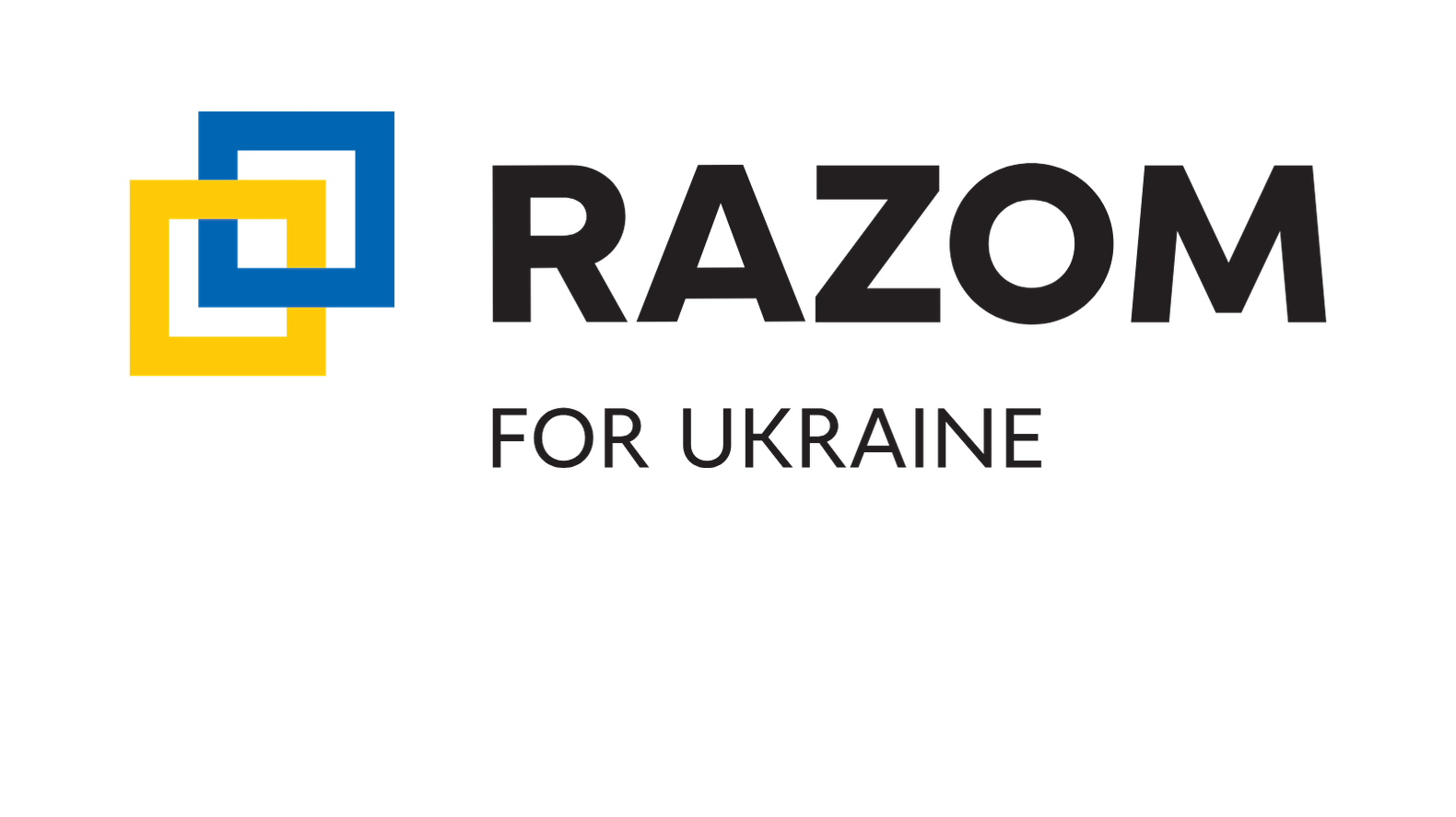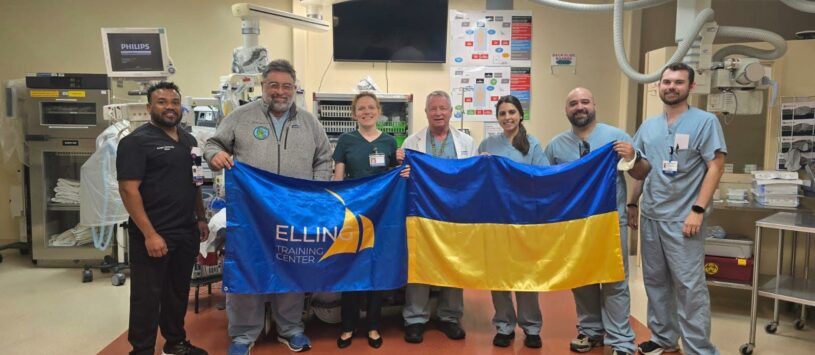When Ukraine’s defenders are wounded on the battlefield, every second counts. Survival depends not only on courage but also on skill, knowledge, and the ability of medical professionals to deliver care under extreme pressure. That is why Razom’s Co-Pilot Project under the Razom Health program is so critical – it equips Ukrainian doctors, surgeons, and instructors with world-class training and connections that directly save lives.
This summer has been a season of impact and growth for the Co-Pilot Project. From presenting Ukrainian innovations at one of the largest U.S. military health conferences, to hands-on training in leading American hospitals, to building the next wave of international partnerships, the message is clear: Ukraine’s medical leaders are not only learning -they are also teaching the world.
Ukrainian Voices on the Global Stage
In early August, Razom supported three Ukrainian medical professionals whose research was accepted at the Military Health System Research Symposium (MHSRS).
- Dr. Oksana Popova, surgeon, ultrasound specialist, and Director of ELLING Training Center, presented her work on advancing emergency ultrasound including FAST-U and TRIDENT protocols.
- Dr. Oleksandr Raboshchuk, anesthesiologist and lecturer at the Ukrainian Military Medical Academy, shared outcomes of Ukraine’s groundbreaking methodology in treating hypovolemic arrest.
- Dr. Kateryna Maslyak, TacMed instructor and anesthesiologist from Kharkiv, highlighted the critical role of lyophilized plasma in managing hemorrhagic shock during large-scale combat operations.
These presentations marked more than academic milestones—they were powerful reminders that Ukraine is contributing to global knowledge in trauma care. U.S. and European doctors, military leaders, and researchers left inspired by Ukraine’s resilience and ingenuity.
And the knowledge exchange went both ways – Dr. Raboschuk shared that he gained a great deal from the conference and during his observership at the University of Florida: “During MHSRS, I learned about advanced issues in military healthcare, including strategies to overcome antimicrobial resistance and modern approaches to resuscitation of patients with hemorrhagic shock. I participated in the Bootcamp for Anesthesia Fellowship. The main takeaway was the importance of simulation-based training and practicing different clinical scenarios. This approach would be highly applicable and valuable to implement in Ukraine. I also participated in Ground Rounds in the General ICU and Orthopedic Department, where I gained an understanding of the importance of a multidisciplinary approach in solving clinical tasks.”
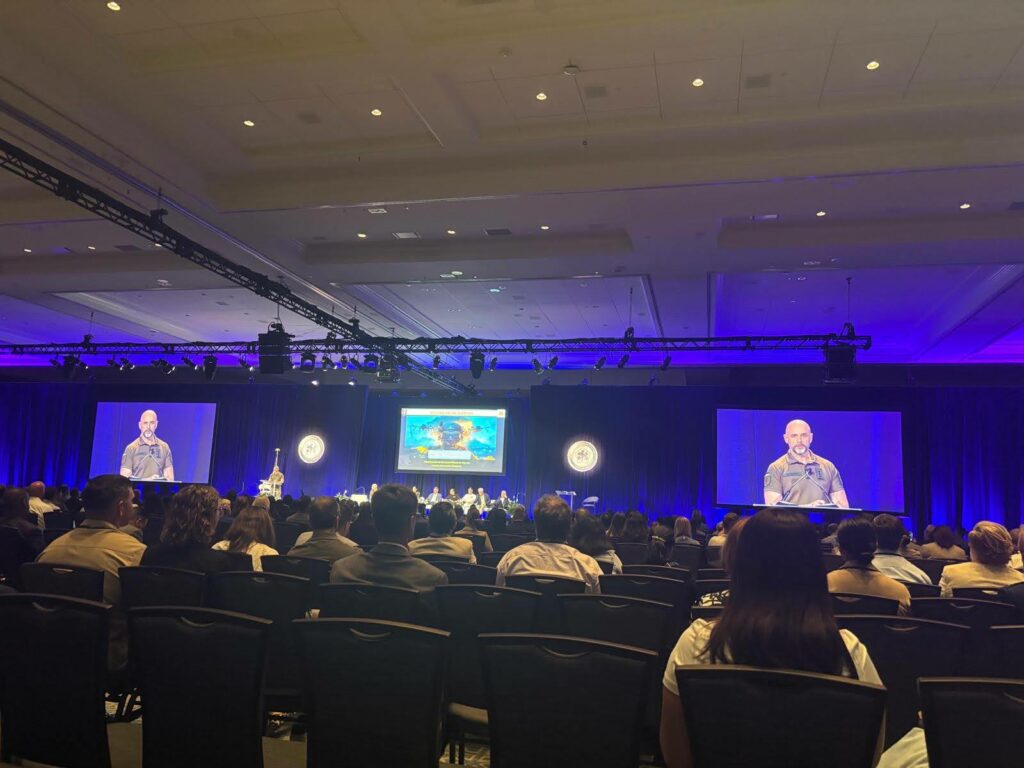
Building Partnerships for Long-Term Impact
Beyond the conference stage, Razom facilitated vital meetings with high ranking leaders from the US and Europe. One Ukrainian delegate joked that they could “fill a binder with Razom business cards,” underscoring just how deeply our teams are embedded in Ukraine’s health and defense ecosystems. Every card represents a project, a training, or a life touched through Razom’s collaborative work – and that is why the project team has no intentions of slowing down. They are actively planning to further develop partnerships that will benefit Ukraine.

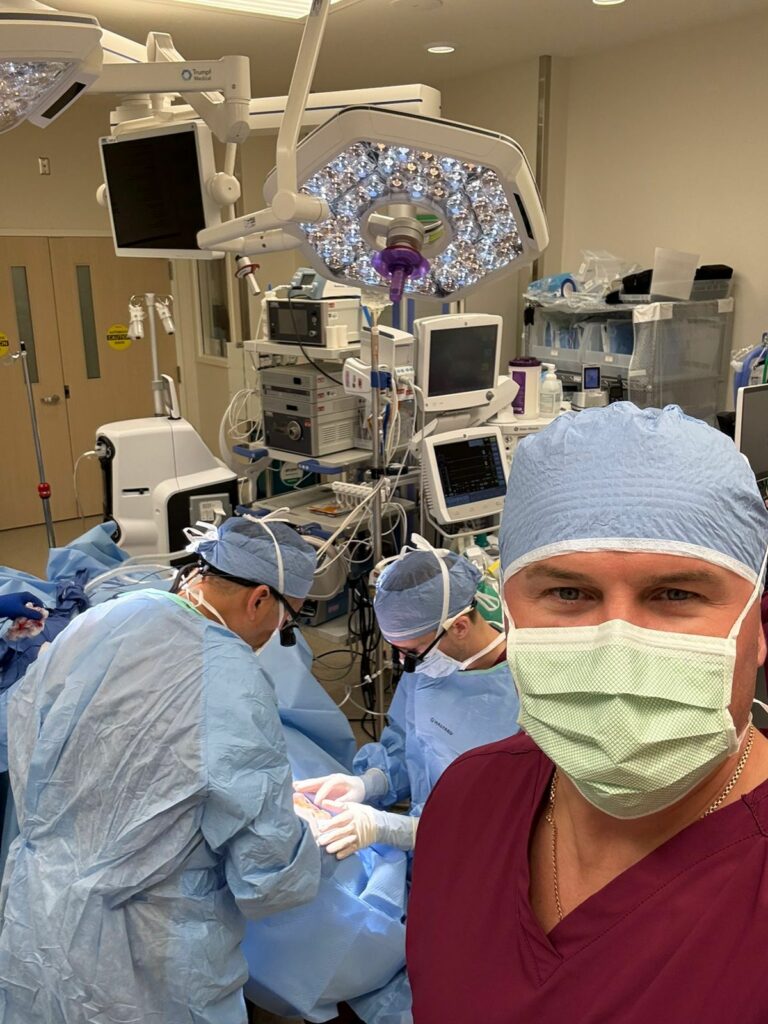
Learning Shoulder-to-Shoulder in U.S. Hospitals
Conferences are just one part of the journey. The heart of the Co-Pilot Project is immersive observerships in U.S. hospitals. In August alone:
- At the University of Florida, Dr. Raboshchuk trained in advanced resuscitation methods and anesthesia, while Dr. Popova prepared her ultrasound data for international publication.
- At the University of North Carolina, Dr. Popova exchanged insights with colleagues on the TRIDENT protocol and recorded an episode for the Prolonged Field Care podcast, amplifying Ukrainian expertise globally. Make sure to check the podcast page in the next few weeks to catch the recording of the episode.
- In Ohio, Dr. Ilya Petrenko began a three-week oculoplastics observership with Dr. Raymond Cho, continuing a collaboration that grew from years of joint surgical missions in Ivano-Frankivsk.
- At OU Health in Oklahoma, eight Ukrainian surgeons—including military doctors from frontline regions—are training intensively in trauma, neurosurgery, orthopedics and facial plastics. Their schedule includes flap reconstruction courses, ATLS certification, and grand rounds lectures.
These experiences create ripple effects. When Ukrainian doctors return home, they bring not only new skills but also new teaching methods, curricula, and international networks that will strengthen Ukraine’s healthcare system for decades to come.
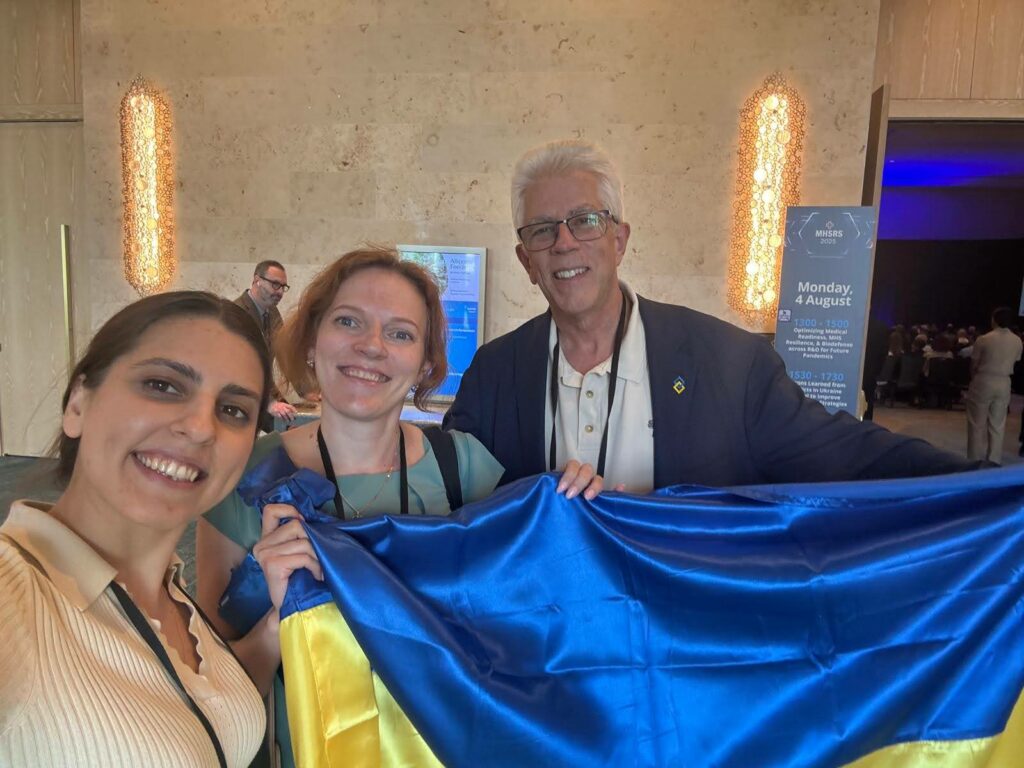
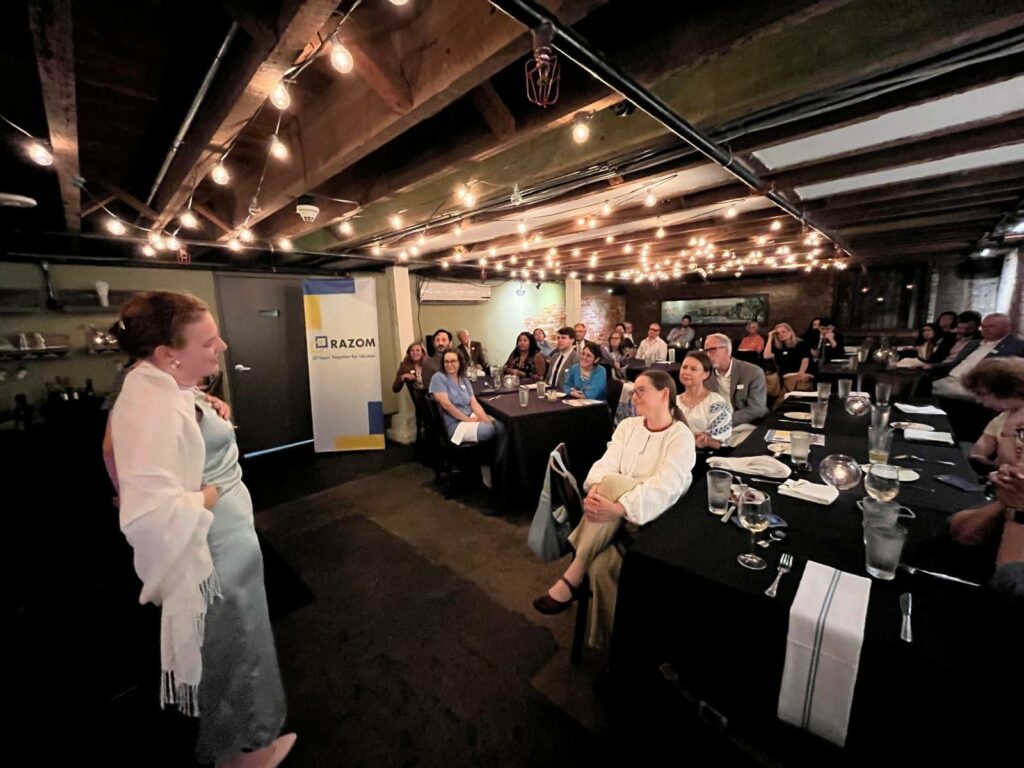
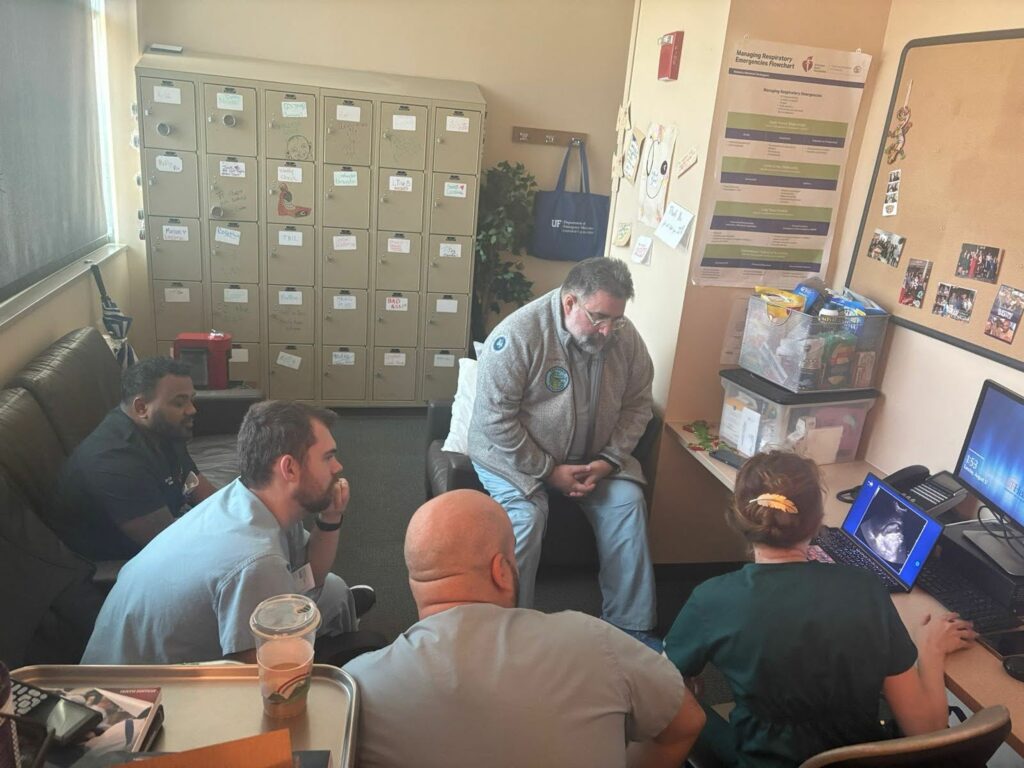
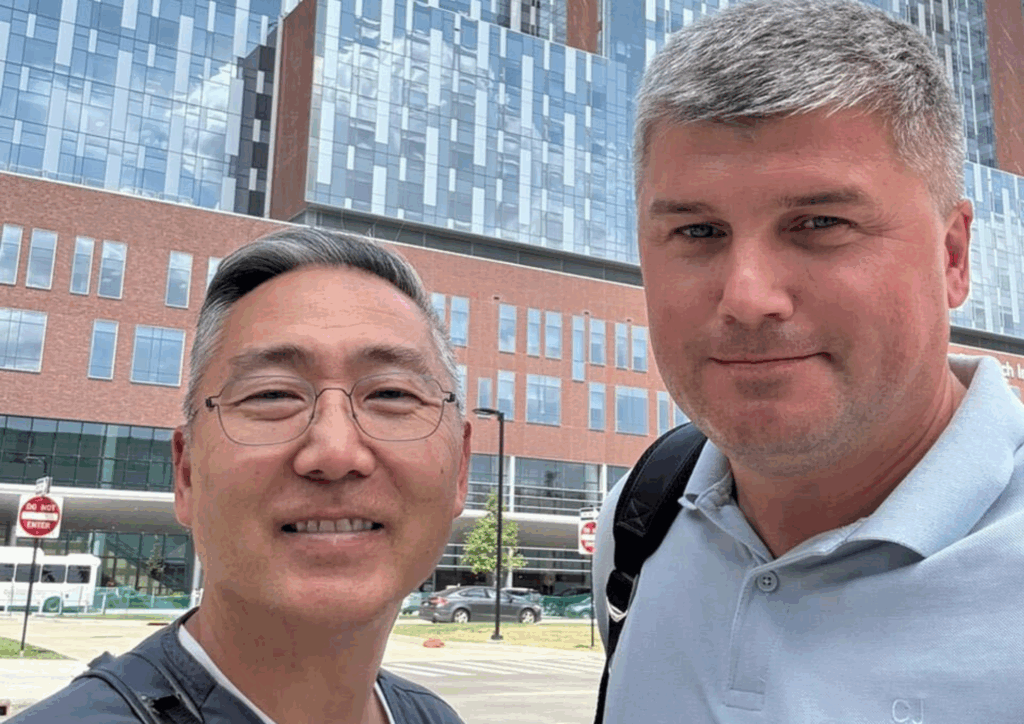
A Community of Support
None of this would be possible without the community that surrounds Razom. In Raleigh, North Carolina, Razom’s Public Engagement team hosted a dinner bringing together Dr. Popova with local leaders, state officials, and supporters. It was a vivid reminder that these efforts are not only about medicine—they are about solidarity, friendship, and building bridges of understanding.
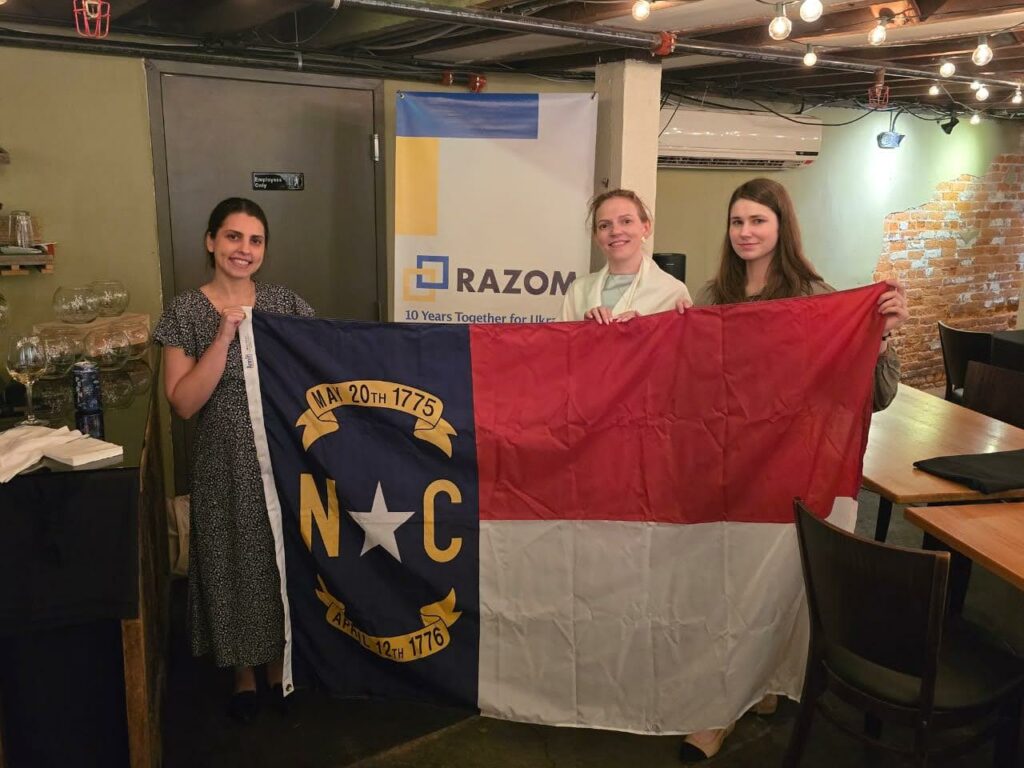
Why It Matters
Every protocol refined, every skill mastered, and every partnership formed translates into lives saved on the battlefield and beyond. As Ukraine defends its freedom, the resilience of its medical community is a beacon of hope—not just for Ukrainians, but for all who believe in the power of human dignity and collaboration.
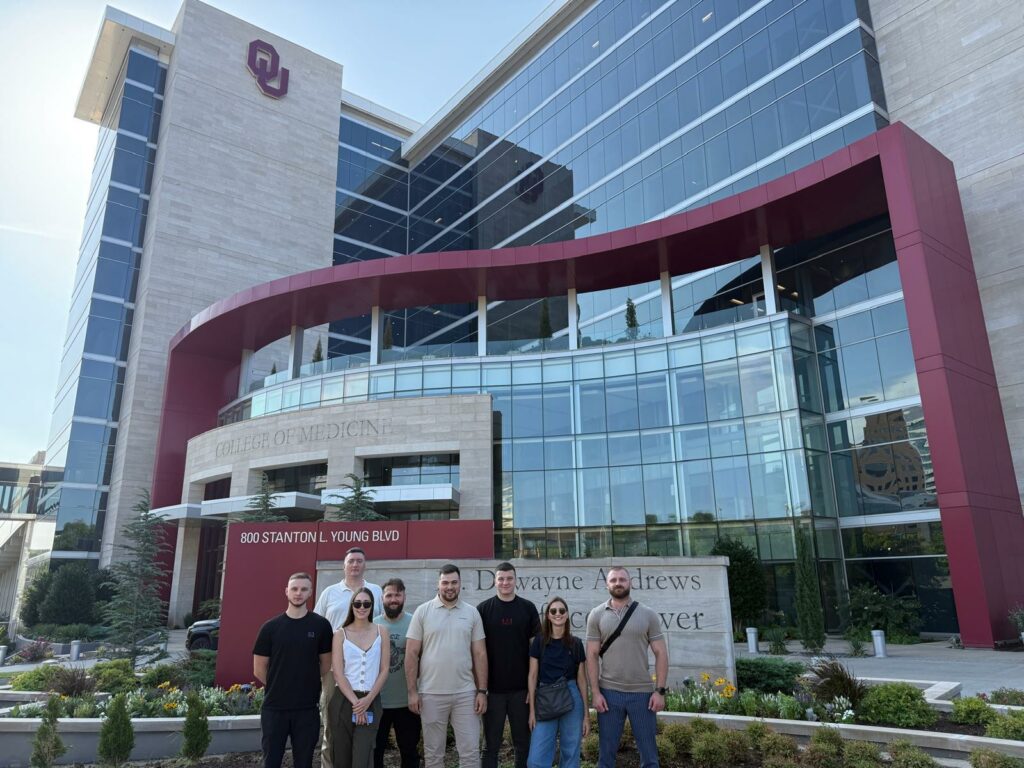
How You Can Help
The Co-Pilot Project is proof of what happens when we come together: Razom, our partners, and supporters like you. Your donations make it possible for Ukrainian doctors to train, present, and innovate at the highest levels. Together, we can ensure that those who sacrifice so much for Ukraine’s future have the best chance at survival and recovery.
Donate to Razom today and stand with us in building a healthier, stronger, and more resilient Ukraine.
